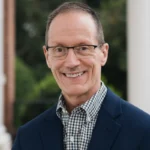In many churches, generation gaps are still wide. I’ve learned, though, that generations often resist one another without knowing one another. In fact, it’s easy to blame others when you don’t know their names or their stories. Here are some practical ways to close those gaps by guiding the generations to get to know each other.
- Intentionally invite older, long-term members to attend the church’s membership class. The goal here, of course, is to introduce new members to older ones. Invite the older members to assist in the class by telling some of the church’s history or leading a facility tour. Have a class dinner at one of the member’s homes.
- Include testimonies in the worship service. We often attend church with large numbers of people whose stories we don’t know. Start to correct this problem by inviting selected members to share their testimony during the worship service – and be sure to vary the generations.
- Start a cross-generational prayer ministry. Unite the student ministry or the young adult ministry with the senior adult ministry by connecting prayer partners from each generation. Informed praying would require that they get to know each other and their families well.
- Create a “grandparenting” ministry. One of my former students pastored a church with several older folks whose children had moved away, in addition to a few young families who lived some distance from their parents and grandparents. He connected these groups and encouraged them to support one another in a new ministry.
- Start a mentoring program. Jesus invested in others, and Paul did the same. Indeed, the Apostle expected older believers to teach and train younger believers (Titus 2). When we do what the Scriptures mandate, we can expect God to bless it.
- Develop multi-generational small groups. I still affirm age-graded or life stage groups, but I also believe a church needs small groups that intentionally bring together the generations. These groups might be ongoing home-based groups, short-term study groups, or leadership groups (e.g., committees/teams).
- Do social ministry and servant evangelism. My guess is that younger folks will get on board quickly, as they want to do hands-on, relevant, transforming ministry. Older folks, too, recognize these responsibilities, and they appreciate the zeal that young leaders add to the work.
- Enlist a young leader to oversee the senior adult ministry. Most often, churches enlist older believers to lead the senior adult ministry. I encourage you, though, to seek a young minister who can lead and learn from the older believers. When the generations learn from each other, the church will be stronger.
- Plan intentional studies addressing the generations. Information and education are strong tools in bridging these gaps. Many times, our assumptions and conclusions about others are just wrong.
- Set up a family mission trip each year. Then, encourage multiple generations of families in your church to participate in the trip. God often does amazing cross-generational things when folks are working together for the mission.
What other strategies would you add to this list?
Editor’s note: This article was originally published at chucklawless.com.

MDiv Preaching and Pastoral Ministry
The Preaching and Pastoral Ministry track prepares students for pastoral ministry in the local church with a special emphasis on expository preaching.




No comments have been added.